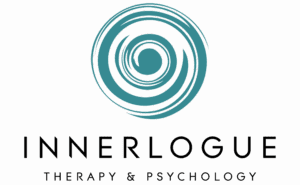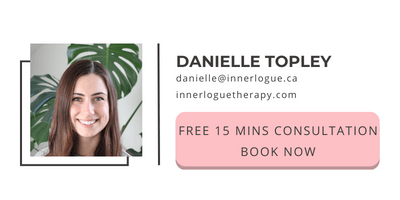Do find yourself feeling controlled by worry, nervousness, and fear? Does anxiety hold you back from acting in alignment with your values and living the life you desire?
Understanding Anxiety: A Natural Response
Confronting anxiety can manifest in various ways, sending important messages to our minds and bodies. When functioning as intended, anxiety helps us accurately assess stress and guides us in determining the necessary actions to manage it. It serves as a type of survival mechanism that mobilizes us to respond to potential threats and challenges. However, excess anxiety can become counterproductive, and potentially hinder our ability to deal with stressors effectively.
The Dual Nature of Anxiety
In various situations, anxiety acts as a motivating force. While it may not be pleasurable, moderate anxiety prepares for stressors such as exams, meetings, or social events, it provides us with a sense of urgency and productivity. On the flip side, excess anxiety can overwhelm and make stress feel unmanageable. If you find yourself frequently overwhelmed by anticipatory anxiety, you are not alone!

Avoidance Strategies: A Common Pitfall
People commonly confronting anxiety by doing the opposite – avoiding it! It is natural to seek temporary relief by steering clear of distressing situations, things, or emotions. Unfortunately, these avoidance strategies are usually ineffective in the long run. By consistently avoiding stressors, our minds and bodies inadvertently receive the message that the stressor is dangerous and that the sole solution is to ignore it. This may seem like a simple fix, but it does not eliminate the root cause of the anxiety. Consider the scenario of preparing for a presentation; instead of facing the associated anxiety head-on, you may choose to engage in alternative activities instead (for example watching TV, cleaning the house, or meeting with friends). This may provide an initial sense of relief, but upon returning to the presentation preparation, you may feel more anxious because you now have less time. The cycle perpetuates itself, with avoidance delaying and potentially intensifying the stressor.
Understanding Triggers: Taking Proactive Steps
Nonjudgmentally acknowledging the ways anxiety shows up can help us identify triggers and take proactive steps toward managing its effects. Some individuals can readily identify situations or stressors that trigger anxiety, whereas others feel as though anxiety is consistently in control. Anxiety does not have to peak before we take action. Taking proactive steps to manage anxiety while it feels less intense, is an effective practice to prevent it from escalating further. Mindfulness, grounding techniques, daily routines, and regular exercise are some practical strategies that be implemented to improve well-being.
The Challenge of Change: Patience and Self-Compassion
Learning to manage anxiety requires patience and self-compassion. Although there are many strategies for helping lessen anxiety, they are not immediate solutions or one-size-fits-all. And of course, telling yourself you will go for a walk when you are anxious is much easier than actually going for the walk. Replacing old, familiar patterns with new ones, takes time, practice, and perseverance.
The Role of Therapy: Guiding You Towards Change
Therapy can guide you in identifying and facing the stressors that fuel your anxiety. It can help you gain insight into what choices, patterns, and vulnerabilities maintain your anxiety. You will be supported in your effort to explore and implement strategies to improve your relationship with anxiety in a way that feels right for you. By collaboratively challenging patterns of anxiety, counsellors can help you transform it from a force that overwhelms you to a tool for mental resilience and empowerment.
Recognizing the Signs: When to Consider Counselling
Seeking counselling can be a pivotal decision in your journey towards managing anxiety. If anxiety is interfering in multiple areas of your life (e.g., school, work, relationships, daily life, etc.), it may be an opportune time to consider professional guidance. Some indications that you could benefit from support include physical aches and pains, sleep disturbance, persistent worries, difficulty concentrating, or feeling agitated and restless. If you find yourself constantly procrastinating or trying to avoid anxiety, counselling can provide valuable insights and tools for breaking these patterns. Whether anxiety has recently surfaced amidst a life change or has been around for as long as you can remember, there is no wrong time to seek counselling. No problem is too big or too small. Accessing counselling signifies prioritization of your mental and emotional well-being (https://www.goodtherapy.org/blog/why-should-i-go-to-therapy-8-signs-its-time-to-see-a-therapist).
Taking the Leap: Seeking Counselling Support
Taking the step towards therapy can evoke a range of emotions, even for those who do not struggle with anxiety. The decision to seek counselling can be a significant one and so experiencing apprehension and fear is entirely normal. Professional Counsellors aim to create safe, nonjudgmental spaces where you can explore yourself and your anxiety. The goal is not to change you or eliminate your anxiety but to support you in achieving your version of better.
You Are Not Your Anxiety
Anxiety may feel like an all-encompassing part of who you are, but it does not have to be. A genuine, supportive counsellor for CBT can help you create distance between yourself and your anxiety. With the right support, you can learn to understand, manage, and gain mastery over it. You may have anxiety, but you are not defined by it.
This post was written by Danielle Topley
FAQs
1. How do you confront your anxiety?
You can confront anxiety by:
- Identifying triggers and understanding your patterns of thinking.
- Practicing relaxation techniques like deep breathing or mindfulness.
- Gradually facing feared situations through exposure therapy.
- Seeking support from friends, family, or a therapist.
2. Does confronting anxiety make it better?
Yes, confronting anxiety in a gradual and supportive way helps reduce its intensity over time. Avoidance can worsen anxiety, while facing it builds resilience and confidence.
3. What is the best way to tackle anxiety?
The best strategies include:
- Cognitive Behavioral Therapy (CBT) to reframe negative thoughts.
- Regular exercise and a healthy lifestyle.
- Mindfulness meditation to stay present.
- Gradual exposure to anxiety-provoking situations.
4. How can therapy help with confronting anxiety?
Therapy provides a structured environment to:
- Identify and challenge negative thought patterns.
- Learn coping techniques like relaxation and grounding exercises.
- Develop personalized strategies to manage triggers.
- Build confidence in facing anxiety step by step.



